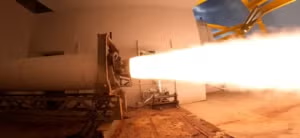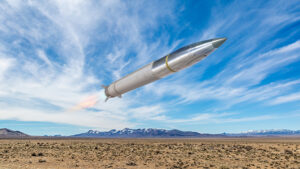The Air Force still hasn’t identified the root cause of why an upper stage engine on a Delta IV rocket failed during an October Global Positioning System (GPS) IIF-3 satellite launch. “The latest is we still don’t have root cause,” Air Force Space Command (AFSPC) chief Gen. William Shelton said yesterday during an Air Force Association breakfast in Arlington, Va. This could lead to further launch delays as the Air Force said in a Oct. 11 release the “launch manifest…
Contract Updates
Freeman Holdings of Hawaii LLC doing business as Million Air Honolulu (Kapolei, Hawaii (SPE607-26-D-0006) – $86,689,562);
Freeman Holdings of Hawaii LLC, doing business as Million Air Honolulu, Kapolei, Hawaii (SPE607-26-D-0006, $86,689,562); McClellan Jet Services, McClellan Park, California (SPE607-26-D-0011, $80,381,818); Avfuel Corp., Ann Arbor, Michigan (SPE607-26-D-0019, $36,817,846); San Bernardino International Airport Authority, San Bernardino, California (SPE607-26-D-0009, $31,367,062);…
US Foods Raleigh (Zebulon, North Carolina) – $198,260,924
US Foods Raleigh, Zebulon, North Carolina, has been awarded a maximum $198,260,924 firm-fixed-price with economic-price-adjustment, indefinite-delivery/indefinite-quantity contract for full-line food and beverage items. This was a sole-source acquisition using justification 10 U.S. Code 3204 (a)(1), as stated in Federal Acquisition…
ControlPoint Surveying Inc Honolulu Hawaii (W9128A-26-D-A007); KAI JV San Diego California (W9128A-26-D-A008); and Sam O. Hirota Inc (Honolulu, Hawaii (W9128A-26-D-A009) – $9,900,000
ControlPoint Surveying Inc,* Honolulu, Hawaii (W9128A-26-D-A007); KAI JV,* San Diego, California (W9128A-26-D-A008); and Sam O. Hirota Inc,* Honolulu, Hawaii (W9128A-26-D-A009), will compete for each order of the $9,900,000 firm-fixed-price contract for architect-engineer services for geotechnical engineering, engineering geology, topographic survey,…
Carbon Asset Developer Associates LLC (Alamo, Texas) – $19,864,240
Carbon Asset Developer Associates LLC,* Alamo, Texas, has been awarded an estimated $19,864,240 fixed-price with economic-price-adjustment, requirements contract for various types of fuel. This was a competitive acquisition with thirty-five responses received. This is a two-year eight-month contract with no…













